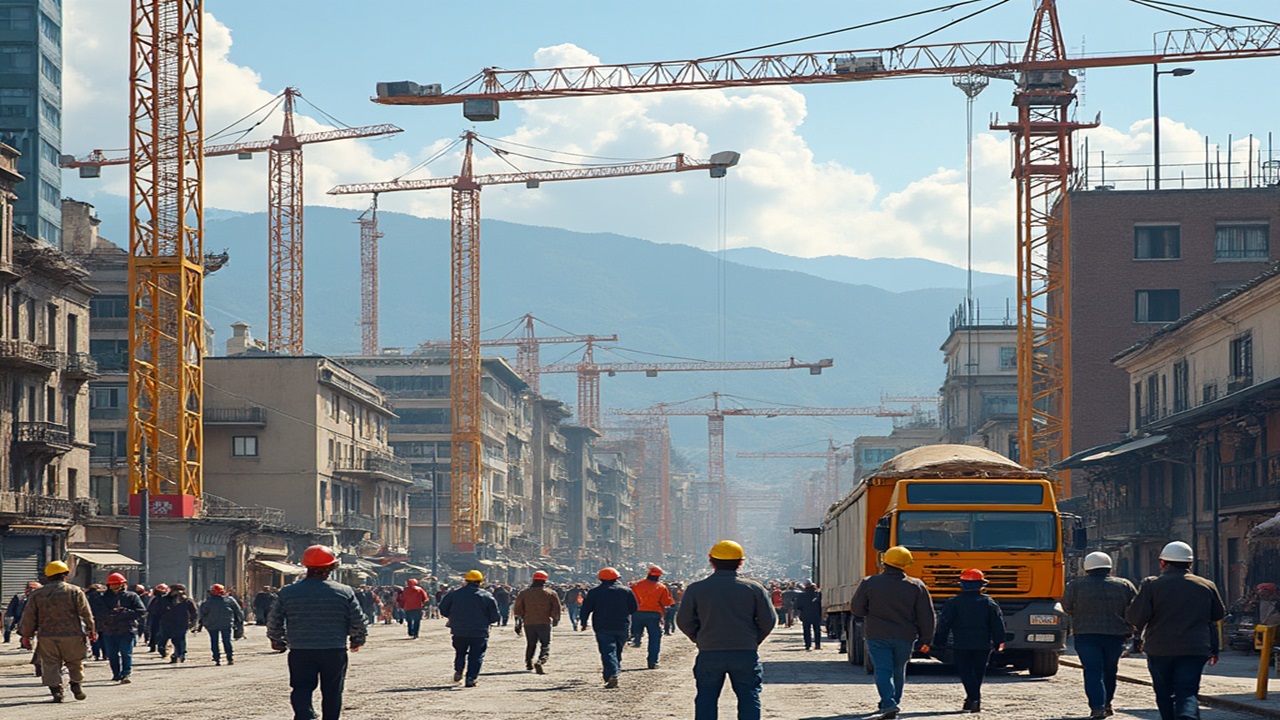Western Balkans Economic Growth in 2024: Key Drivers, Challenges, and Opportunities
The World Bank's latest report on the Western Balkans highlights a year of promising growth in 2024, fueled by domestic demand and supported by targeted reforms. However, ongoing challenges—including widening fiscal deficits, a slow recovery in poverty reduction, and labor shortages due to migration—continue to press on the region’s economic stability. Sustainable growth, according to the report, will require a balanced approach that includes gender equity in employment, environmental goals, and regional integration with the EU.

Western Balkans Economic Report Highlights Growth Opportunities, Challenges Ahead
The "Western Balkans Regular Economic Report No. 26, Fall 2024: Retaining the Growth Momentum," published by the World Bank, presents an encouraging yet nuanced look at economic growth across Albania, Bosnia and Herzegovina, Kosovo, Montenegro, North Macedonia, and Serbia. The report forecasts a growth uptick, noting that while domestic demand and sectoral investments drive much of the progress, external factors like weak EU demand and persistent fiscal challenges continue to influence the region’s economic landscape.
Accelerating Economic Growth Through Domestic Demand
The Western Balkans is projected to see a modest increase in economic growth, up to 3.3% in 2024 from 2.6% the previous year. This growth is predominantly fueled by domestic demand, with sectors such as construction and services making strong contributions. As the EU market, particularly Germany grapples with economic slowdowns, trade from the Balkans remains under pressure, emphasizing the need for regional economies to rely on internal consumption and investments to maintain momentum.
Employment Gains and Labor Mobility Programs
In a positive sign, employment rates across the Western Balkans have reached record highs in 2024. However, the growth brings its own set of issues: skill mismatches and labor shortages are increasingly challenging for local businesses. Regional initiatives, such as the Open Balkans labor mobility program, aim to alleviate these shortages by enabling more seamless movement of workers across borders. By addressing these labor market mismatches, the region is working toward a more flexible and adaptive workforce that can support ongoing economic growth.
Bridging the Prosperity Gap: An Unfinished Goal
Despite progress in many areas, poverty reduction remains a complex challenge. The report introduces a new metric, the Prosperity Gap, to illustrate the income disparities that still separate the Western Balkans from high-income countries. Although poverty is declining, the pace is slow, underscoring the need for further economic reforms and targeted social policies. According to the report, income growth remains essential to achieving greater prosperity and closing gaps within these societies.
Gender Equity as a Pathway to Economic Inclusivity
Another essential focus area is the gender employment gap. Closing the gender gap in the workforce could lead to substantial increases in GDP across the region, according to the World Bank. By boosting women’s workforce participation, governments can tap into an underutilized labor force, driving economic inclusivity and enhancing productivity. This shift would not only benefit the economy but would also signal a meaningful step toward gender equity across the region.
Fiscal Deficits and Public Spending Pressure
The report warns of widening fiscal deficits across the region in 2024 as rising public expenditures outstrip revenue growth. Spending on social benefits, including pensions and public wages, has surged, putting additional strain on government budgets. While most Western Balkan countries have maintained stable public debt levels, Montenegro and North Macedonia have seen slight increases. The report advises fiscal prudence to prevent further debt accumulation, especially amid fluctuating global economic conditions.
Decelerating Inflation and External Deficit Pressures
Inflation in the Western Balkans has gradually declined, yet essential goods, including food, remain susceptible to price hikes due to seasonal and weather-related factors. Additionally, external deficits are widening, influenced by sluggish EU demand and stagnant remittance inflows. To offset these challenges, the region relies heavily on foreign direct investment (FDI), which continues to finance most of the current account deficits and helps maintain financial stability.
Migration’s Dual Impact on Labor and Economic Growth
A significant aspect of the report’s “Spotlight” section examines migration’s ongoing impact on the Western Balkans. With roughly one in four citizens residing abroad, emigration affects the local labor supply but also brings benefits through remittances and potential skills transfer when migrants return. As the region deals with labor shortages across skill levels, managing migration and finding ways to retain talent domestically will be crucial for long-term stability.
Structural Reforms and EU Integration: The Road Ahead
Looking forward, sustained growth will depend on structural reforms that focus on productivity and high-quality investments. The report underscores the importance of closer economic integration with the EU, particularly through initiatives like the Single Euro Payments Area (SEPA) expansion, which can foster deeper market integration and smoother financial flows between the Western Balkans and the EU.
Path to Net-Zero: Private Investment and Green Policies
Finally, as climate change becomes an increasingly urgent concern, the Western Balkans are urged to commit to net-zero goals. This transition requires extensive private sector investment in areas such as renewable energy and sustainable transportation, while governments play a supporting role by implementing carbon pricing, harmonizing regulatory frameworks, and reskilling the workforce for green jobs.
The "Western Balkans Regular Economic Report No. 26, Fall 2024," published by the World Bank, highlights both the momentum and the hurdles in the region's economic journey. As the Western Balkans strive to align with EU standards, focus on fiscal discipline, and address socio-economic disparities, this report underscores that sustainable, inclusive growth is within reach—provided the region continues to prioritize reforms that address fiscal, environmental, and social challenges.
- FIRST PUBLISHED IN:
- Devdiscourse










